#Romanian american university
Explore tagged Tumblr posts
Text

Admission is going on!! Intake: September 2023
Apply early to grab your early-bird scholarship.
0 notes
Text
Hello usamericans. Before you are permitted to engage with me on how much of a condescending and rich and gross European I am, I would like you to very quickly answer a quiz about my home country of Romania. Don't worry, this is an open book quiz. You may not use Wikipedia articles full of "citation needed".
Question 1. Point the location of Romania on a map. Where in Europe is it? [10 points]
Question 2. List three basic facts about this region of Europe and how it differs from the rest of the continent. [15 points]
Question 3. What happened during the 1989 coup? What reason might there be to call it a coup instead of a revolution? Hint: it has to do with the National Salvation Front and the length of its existence. [12 points]
Question 4. Was the CIA involved? [1 point]
Question 5. What were the immediate economic effects upon the general population and on national industry? [10 points]
Question 6. How much involvement did the US have in "advising" the early post-socialist Romanian government? What reasons did the US have to encourage the Romanian government to adopt a policy of 100% foreign ownership of investments? [10 points]
Question 7. Why are Romanian wages kept so low? [ 2 points]
Question 8. Why have Romania's resources and industry been bought by foreign companies so cheaply? [5 points]
Question 9. If Romania had a powerful industrial base of industrial production, where did it go after 1989? [5 points]
Question 10. In your own words, describe why you believe your country is the centre of the universe and people hate it for no reason, why you are so incurious about the world around you as an adult with internet access, and lastly, why do you get so mad when someone refers to you as usamerican instead of just American (a demonym that applies to two whole continents)? [30 points]
692 notes
·
View notes
Text
I am interested in a comprehensive list of all the different names Jaskier is given in various translations. It would be fascinating to explore the meanings behind each name and any symbolism they might carry. I plan to group together languages that use the same name for him.
Jaskier: His name resonates universally, transcending languages and cultures. In Polish, French, Portuguese, Romanian, Bulgarian, Russian, and Spanish, Jaskier translates to Buttercup. These small yellow flowers symbolize joy and happiness, evoking images of carefree days and childlike wonder. They also represent youth and innocence, which aligns with theories about Jaskier's non-human origins. Another significant symbolism of buttercups is their friendship connection, fitting perfectly with Jaskier's close bond with Geralt. Historically, buttercups were used in folk medicine, symbolizing healing and protection, despite their toxicity and the need for careful handling.
Dandelion: Known from the English, Hungarian, Italian, Japanese, Belarusian, and Turkish translations. Perhaps the most familiar name, Dandelion, typically appears in two forms: small white, fluffy flowers that can be blown away by the wind and bright yellow blooms. Dandelions symbolize resilience, thriving in challenging conditions and growing almost anywhere, symbolizing perseverance, strength, and the ability to overcome obstacles. Historically used in medicine, dandelions are associated with healing and survival. They also symbolize a connection to nature and freedom, perfectly reflecting the bard’s character. Some Native American tribes view the dandelion as a sun symbol, representing warmth, growth, and the sustaining force of life. This connection to nature and resilience mirrors Jaskier’s character, who, despite facing many challenges, remains resilient and deeply connected to the natural world.
Marigold: Used in Czech and Serbian translations, this name is perhaps the most unusual since there is already a character named Marigold in the series. Nonetheless, marigolds symbolize brightness and positivity. With their vibrant yellow and orange hues, marigolds represent warmth, cheerfulness, and the light of life. This fits well with a bard’s role, as marigolds also symbolize creativity. In Mexican culture, marigolds are central to Día de los Muertos (Day of the Dead) celebrations, symbolizing the connection between the living and the dead. In Indian culture, marigolds are used in religious rituals and weddings, symbolizing love, devotion, and the divine. They are often offered to gods and goddesses as a sign of reverence and respect.
Ranonkel: From Dutch, though translated to Ranunculus, which are buttercups. I'd like to discuss the story from Greek mythology that relates to Ranunculus, as it aligns with Jaskier's character. Ranunculus was a handsome and talented young man known for his beautiful singing voice, captivating everyone who heard him. However, he was also vain and self-centred, revelling in the admiration he received. One day, while performing in a meadow, Ranunculus encountered a group of wood nymphs (dryads). Enchanted by his voice and appearance, the nymphs stopped to listen. Despite their admiration, Ranunculus ignored them, focusing solely on his performance and delighting in his own voice. Pan, the god associated with rustic wilderness and nymphs, observed Ranunculus's vanity. To teach him a lesson, Pan intervened. He transformed Ranunculus into a delicate, beautiful flower that would forever bloom in meadows and fields—the Ranunculus flower. This mythological tale is an intriguing parallel to Jaskier's character and could potentially inspire a fanfiction story in the future.
Valvatti from Finnish. Valvatti, which, from what I can tell, translates to Sow Thistle, can symbolize resilience but can also symbolize unseen beauty. Despite being considered a weed, sow thistle produces small, yellow flowers that symbolize hidden beauty or overlooked potential. This can remind you to look beyond outward appearances and appreciate hidden qualities.
Rittersporn German. Otherwise known as Larkspurs, they can symbolize openness and lightness with their vibrant colours. They can also be used as symbols for thickness and are connected to strong bonds of love. Some cultures believe that larkspurs offer protection against negative energies or bad luck. Placing them in a garden or a bouquet is thought to bring positivity and ward off evil spirits.
Vėdrynas is From Lithuanian. Breaking from the flowers, Vedryans translates to Lark, which can be seen as the bringers of dawn and the start of a new day. Larks are symbols of songs and music, which goes great with a Bard. Larks are agile birds that soar high in the sky, symbolizing freedom, independence, and the ability to rise above challenges or limitations.
Blyskáč is from Czech. It translates to "sparkler" or "firecracker" in English. Once again, breaking from the typical flower names, blyskac can symbolize celebration. The firecrackers' brightness and sparkle evoke joy, optimism, and positivity. They are often associated with bringing good luck and warding off evil spirits in various cultural traditions. Firecrackers and sparklers burn brightly but quickly fade away. They symbolize the fleeting nature of moments and encourage living in the present and appreciating life's transient beauty.
These are all the names I could find. If I missed any or made any translation errors, please feel free to let me know.
#the witcher netflix#the witcher#joey batey#geralt of rivia#jaskier the witcher#henry cavill#the witcher jaskier#geralt x jaskier#geraskier#fic ideas#jaskier#gerskier#cirilla fiona elen riannon#freya allan#headcanon#yennefer of vengerberg#the witcher season 3#the witcher season three#anya chalotra
95 notes
·
View notes
Text
Sebastian Stan’s Crash Course in Becoming Trump
After a long tour of duty in the Marvel universe, the Romanian-born actor is conquering the festival circuit, with starring roles in “The Apprentice” and ��A Different Man.”
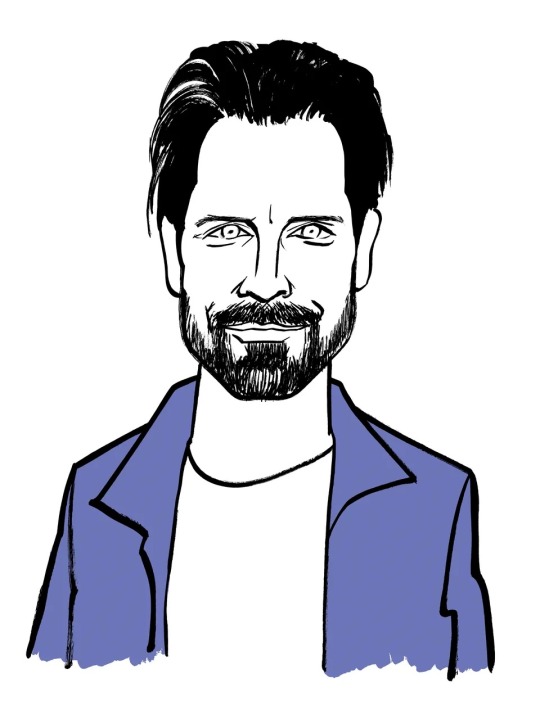
Illustration by João Fazenda
By Alex Barasch
The actor Sebastian Stan glanced approvingly at the neon signage and old-school menus at the Pearl Diner, in the financial district, the other day. He’s lived in and near New York since he was twelve—around the time Donald Trump swapped his first wife, Ivana, for Marla Maples—and has watched the city evolve. “It’s funny. It’s changed, but it’s also the same buildings,” he said. “And then you’re, like, ‘The buildings are there, but you are not the same.’ ”
Stan took off a white ball cap and ordered coffee with cream; he was jet-lagged, fresh from the Deauville American Film Festival, where he’d received the Hollywood Rising-Star Award. “Rising” is a stretch for the forty-two-year-old, who’s appeared in a dozen Marvel projects, but Stan has lately reached a different echelon. In May, he went to Cannes for “The Apprentice,” in which he plays seventies-era Trump. In Berlin, he’d won the Silver Bear, an award whose previous recipients include Denzel Washington and Paul Newman. “Everyone was, like, ‘Oh, the Silver Bear!’ ” Stan said. “Then you go back and you’re, like, ‘Do we know what the Silver Bear is in America?’ ”
The prize was for his role in “A Different Man,” Aaron Schimberg’s surreal black comedy, which nods to “Cyrano de Bergerac.” Stan stars as a man whose lifelong disfigurement is miraculously reversed; the shoot included a grisly three-and-a-half-hour session spent peeling off chunks of his face.
“The Apprentice” demanded a transformation of a different sort. At the diner, Stan pulled out his phone and swiped through an album labelled “DT physicality”—a hundred and thirty videos of Trump, which capture his tiniest gestures and his over-all mien. Marinating in Trump content was, Stan said cheerfully, “a psychotic experience.” He watched the clips so many times that when the director, Ali Abbasi, asked him to improvise in a scene about marketing Trump Tower, he could rattle off the stats: sixty-eight stories of marble in a peachy hue chosen by Ivana, because, as the real Trump put it in a promo, “people feel they look better in the pink.” (It turned out that he’d also memorized Trump’s lie: the tower is actually fifty-eight floors.)
Growing up in Communist Romania, Stan had just an hour of TV news each night; New Year’s Eve was an event because it meant twelve hours of programming. His instinct for mimicry—he had a habit of imitating family members and neighbors—was the earliest tell that he might be an actor. After he and his mother fled to Vienna, in 1989, Stan got his first credit, in a Michael Haneke film—an experience that nearly put him off show business. “I stood in line with, like, a thousand kids, for I don’t know how many hours—which I hated,” he said. “If I could fucking meet Haneke now, it would be amazing!”
When the family moved again, to America, he experienced pop-culture shock. He binged every movie he’d missed—from “Back to the Future” to “Ace Ventura”—in a pal’s basement. Another friend roped him into the school play. “My high school was really, really small, so I didn’t have a lot of competition,” Stan said. “They were, like, ‘Please be in the play!’ ” Soon he was playing Cyrano himself.
After stints on Broadway, and on “Gossip Girl,” Stan was scooped up by Marvel. “I’ve been lucky to play a character for fifteen years,” he said. The blockbuster paychecks freed him up to explore edgier material. “I, Tonya,” in which he played the ice-skater Tonya Harding’s dirtbag husband, was a turning point. “It allowed me to see that a good director will bring out more in you than you can,” Stan said. It was also his first time portraying a real person—a feat that he repeated in “Pam & Tommy,” as the Mötley Crüe drummer Tommy Lee, and now in “The Apprentice.”
“It’s like learning a piece of music,” Stan said, of nailing an impression. “You’ve got to start out slow—it requires practice. Suddenly, you’re getting it more. You’re still making mistakes—but you’re playing the music. You’re playing the music every day until you can do it in your sleep. That’s when the fun starts.” He sliced the air for emphasis, then caught himself and grinned. “And sometimes it’s months later at a diner, and you’re, like, ‘Why am I doing that with my hands?’ ”
#Sebastian Stan#The New Yorker#Interview#The Apprentice#Ali Abbasi#A Different Man#Aaron Schimberg#mrs-stans
34 notes
·
View notes
Text
Each of the batkids has had a moment where they once forgot that they spoke multiple languages(or even their mother tongue) in high stress situations.
--------------------
A woman: *speaking Arabic to Damian*
Damian who forgot his first language: English woman! English!
---------------------
A young girl cries out in french
Duke, who's in ~collage~ and is learning to be a ~productive and successful member of society~ is taking university level Korean and is still in that ~headspace~: swis-swis uljima
----------------------
A young boy: *speaks german*
Stephanie "I'm the best at German, Bruce said so" Brown: Est-ce que....uh....oh shite
-----------------------
An old woman: *speaks Romai*
Dick: * replies in Romanian*
-----------------------
A shocked person: Hel-
Jason: Do you sprechen American!
-----------------------
Person: Ma mere! Óu est elle? Elle n'est pas ici!
Tim: Je m'appelle Red Robin
-----------------------
Someone: *signs to Cass*
Cass: *failing computer noises*
#cassandra cain#dick grayson#stephanie brown#duke thomas#damian wayne#tim drake#jason todd#batfam#hopefully its kinda funny \;;/#I made a ghostly emoticon thing#if you know what I'm referencing#I love you#platonicly#the bisexual one#I'm taking duolingo french but I'm not good and consulted google translate for the rest#It's probably not accurate#reverse robins
756 notes
·
View notes
Text
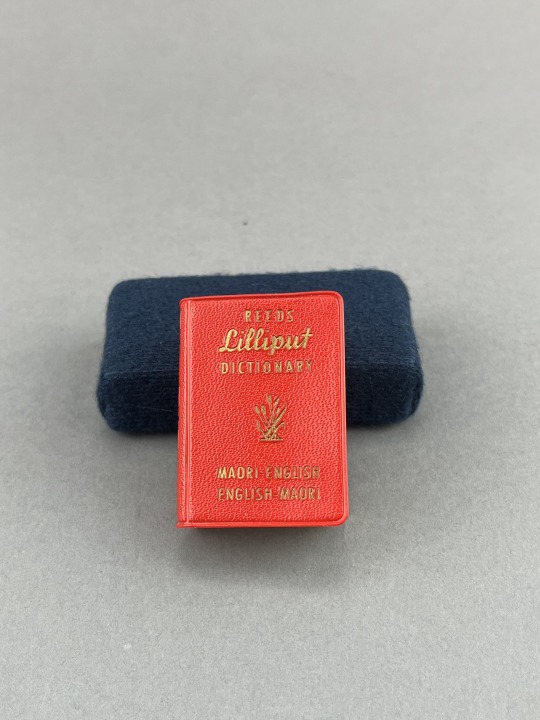
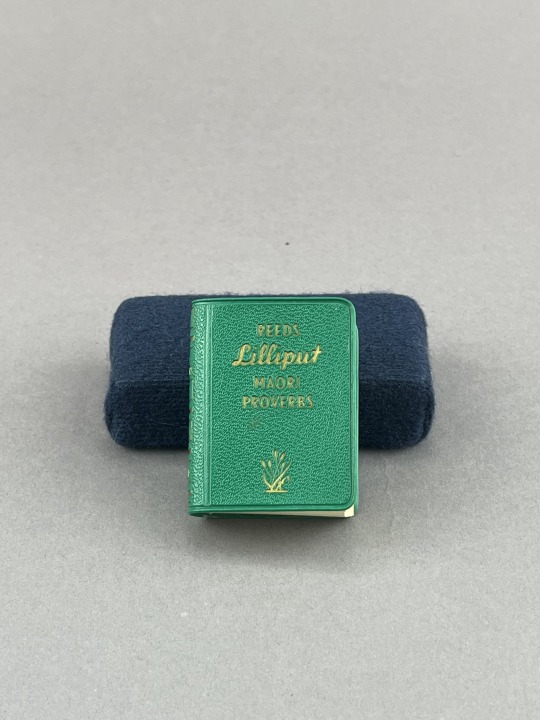
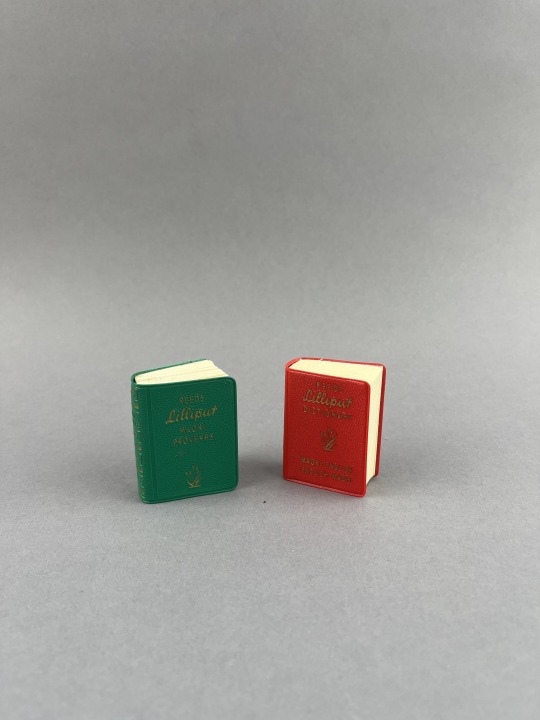
#MiniatureMonday
Happy Māori Language Week from Special Collections & Archives!
Te Wiki o te Reo Māori, Maori Language Week, is celebrated annually the week of September 14th to commemorate Te Wā Tuku Reo Māori, the Maori Language Moment, which stamps the presentation of the Maori Language Petition in New Zealand at 12 pm on September 14, 1972.
Te Reo Māori is the language of New Zealand's Indigenous Maori people. It is a part of the Austronesian language family and shares its roots with other island languages including Tahitian and Hawaiian. The celebration of Te Wiki is rooted deeply in efforts to revitalize the Māori language after years of the speaking and use of te reo was banned in schools. Today, te reo Māori is the official language of New Zealand, or Aotearoa as it is called by the Indigenous people. It has become increasingly used in New Zealand society, culture, and professional institutions. The Māori language has also become something of global interest, with the popularization of the language through its presence in music, film, television, and sports commentary.
In the United States, Polynesians as a whole make up less than half of a percent of the American population, with Māori people as one of the smallest migrant populations. Still, for those living abroad or interested in learning the language from afar, the language revitalization movement has certainly spread to the United States, along with its learning materials and resources.
There is a Māori proverb that reads ahakoa he iti he pounamu, "although it is small, it is greenstone." This refers to the importance of things small but precious, such as these miniatures!
The Reeds' Lilliput Māori dictionary and Reeds' Lilliput Māori proverbs live in Special Collections as part of the Smith Miniature Book Collection. These 5cm tall miniature books were published by A.W. Reed in the early 1960s, the dictionary in 1960 as part of a collection of miniature dictionaries made popular by other global publishers. The book of whakatauki, Māori proverbs, joined the mini-dictionary in 1964. Other language dictionaries include Spanish, French, and Romanian. Due to their size, it is likely that these books were made to entertain more so than educate. Still, they are certainly one of the many taonga, treasures, of Special Collections.
Te Wiki o te Reo Māori 2023 begins Monday, September 11, and concludes Sunday, September 17. Celebrate through songs, stories, conversations, or by learning some library-related Māori vocabulary! You can also visit the University of Iowa LibGuide on learning beginner's te reo Māori.
NGĀ KUPU WHARE PUKAPUKA LIBRARY VOCABULARY
pukapuka book
pūranga archive
whakaputunga collection
kaitiaki pukapuka librarian
wāhi tuku pukapuka reference desk
pānui to read
ako to learn
--From M Clark, Instruction GA
Reeds' proverbs (SMITH PL6465.Z77 .R44 1964) and Reeds' dictionary (SMITH PL6465.Z5 .R44 1960)
#uiowa#special collections#miniaturemonday#uiowaspecialcollections#rare books#library#maori culture#te reo maori#proverbs#new zealand
86 notes
·
View notes
Text
Vampires before they were cool... (3)
A last post for now – maybe more shall follow.

I talked of how the vampire myth was born, and of the vampire craze that overtook Europe. But I only vaguely hinted at what the vampires were back then. So here’s a question: what was a “vampire” in the 18th century, and how did it differ from the creature literature and cinema built? This is not a complete or extensive answer, but here are some things to think about (that I am lifting from Jean Marigny’s works):
The 18th century solidified the three main traits of a vampire. 1) It is an “undead in body”: it is not a disembodied spirit, an ethereal wraith or a spiritual demon. It has a body, it is a physical entity on the material plane. 2) It leaves its grave at night, in order to suck the blood of the living, which in turn extends his unnatural life. 3) His victims become vampires too, after they die.
The idea that vampire lacks a reflection and cannot be seen in mirror was greatly exaggerated by fiction. It was not an universal trait of vampires: it was mostly present in areas where a Germanic culture dominated. There, vampires were said to lack both shadows and reflections in mirror – which was meant to symbolize how they had lost their soul.
The idea of vampires having very huge, big and pointy teeth was greatly exaggerated by the cinema – while indeed the confusion with werewolves led to the idea of vampires having fangs, not all the vampires actually had to bite their victim to drink their blood. Many vampires simply sucked or absorbed the blood directly through the skin, without using their teeth. And in many other cases, such as the “Nachzehrer”, the vampire doesn’t even touch the victim, he just absorbs its life-force from a long distance.

While the bat became THE iconic vampire-animal (especially thanks to Buffon, who named the blood-sucking Southern American bats “vampires” in 1761), traditional vampires are said to turn into all sorts of animals: they can be spiders, or even butterflies, just as they can turn themselves into straw or mist.
Garlic is not an universal remedy against vampire: the belief that garlic repels vampire comes mostly from Romania. However, the vampire of folklore was known to only be able to leave his grave at night, as he was forced to return to his tomb before the singing of the rooster. The vampire also fears holy water and running water (because water is the source and symbol of life), and other religious symbols of Christianity (like the crucifix). A wooden stake through the heart is the best way to put an end to a vampire, but sometimes it is not enough and requires additional rituals. In Russia, the stake must be carved out of aspen wood, because it was the wood in which the cross of the Christ was built; in other countries, people rather use hawthorn, supposed to be the origin of the Christ’s crown of thorns. In Dalmatia and Albania, a dagger blessed by a priest is used rather than a wooden stake. In Romania, the “execution” of a vampire is called “the great reparation” and must be performed at the first lights of dawn, and the stake must be plunged in one hit – else the vampire can resurrect. If the body doesn’t crumble into dust after having its heart pierced, one must decapitate the corpse (usually with a gravedigger’s spade) and burn it. The ashes then have to be either buried under the crossing of two roads, or scattered to the four winds.

Alright, but how do you recognize a vampire, huh? Things are even more complicated here because its region has its own variations. The most generic and recognized trait is that, when in his grave, the corpse that is the vampire doesn’t have either a rigor mortis, or any trace of rot, even several weeks after being buried. Another common trait of vampires is how hairy they are: they have bushy eyebrows, that often join together above the nose, and they have hair in the palm of their hands. Romanian vampires even have a short tail covered with fur, which grows with the heat, and which is supposed to be giving them magical powers. When there is a vampire epidemic, a ritual to know which grave is the one of the vampire went as such: a virgin teenager had to ride a horse who also had never known sex, either entirely black or entirely white. The horse had to enter the cemetery, and supposedly reacted to the grave where the vampire was to be found: a vampire tomb was also identified by how you could find little holes on the ground near it – because it was through these holes that the vampires escaped each night, turning himself into mist. It was also believed that the people born of the sexual union of a male vampire and a female human had the gift of immediately sensing and recognizing vampires: they were called in Serbia “vampiritch” or “vampirovitch”, while in Bohemia and Hungary they were called “dhampirs”.
Finally: how do you become a vampire? Good question! Technically speaking, every human being can become a vampire after death. Nobody is prevented from the risk. But some people are more likely than others to turn into blood-sucking monsters. As I said before, all those that did not received proper Christian funerals or were not buried in holy ground were more likely to become vampires. People who died by suicide or by violent death were more at risks, just like excommunicated people, witches/warlocks, and stillborn infants. Other individuals are predisposed to become a vampire rather because of traits they had when they were born: people born with one or several teeth in their mouth, people born with a “caul” (a piece of the placenta or of the amniotic membrane stuck on the face or head of the baby), people born with either very dark eyes or very bright-blue eyes ; as well as people born with red hair (which were thought to be the “hair of Judas”) or with red spots over their body. When these people came to pass away, extra-precautions were taken to make sure they did not return as a vampire: in Romania, a nail could be plunged in the corpse’s forehead, or the body was pricked with many needles ; or the body was covered with the fat of a pig killed on Saint Ignace’s Day.
It was also very common to place an item in the mouth of the defunct, to prevent the chewing of the shroud or to prevent the soul from returning inside the body: in Romania it was garlic, in Greece it was a Christian host, in Saxony it was a lemon. Sudetenland had the tradition of wrapping the dead in a sort of large stocking: the vampire could only break one stitch of it per year. In Russia, poppy seeds were rather placed in a vampire’s grave, cursing them to counting the seeds each night instead of going out into the world.
People who died excommunicated or of suicide were constantly buried at a crossroad formed by two paths. In Serbia, to protect a house from a vampire attack, a cross made of tar was painted on the doors and the windows ; while in Romania, garlic was hanged in every room, and rubbed onto the doors, windows, chimneys and keyholes. Finally, in Russia, all the roads leading to the cemetery had to be covered in either poppy seeds or briar thorns: the vampire would be forced to pick them up one by one on its way.

18 notes
·
View notes
Text
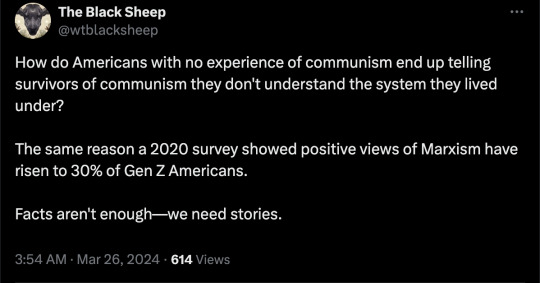
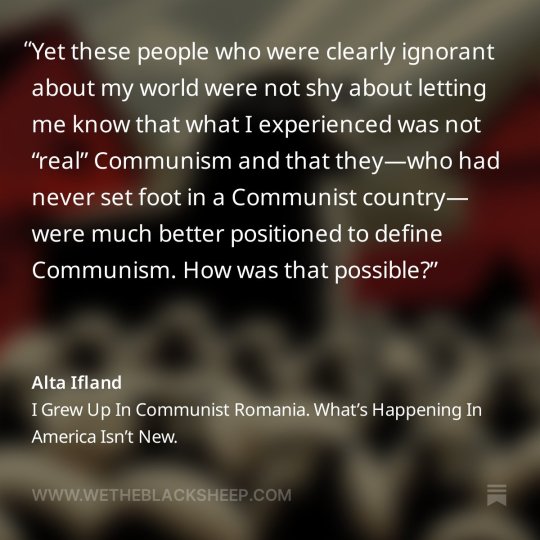
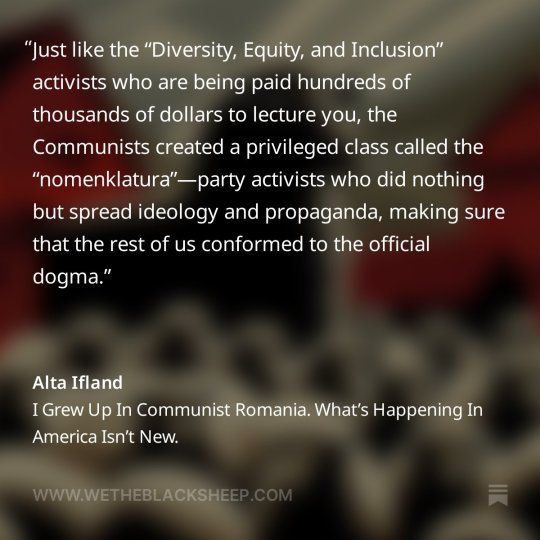

By: Alta Ifland
Published: Mar 25, 2024
Most of us have had at least once in a lifetime the experience of paradise when a place seems suddenly transfigured and elevated to an otherworldly realm. I experienced paradise in Iceland’s Reykjavik Airport in September 1991, where the plane that took me as a political refugee from Romania to the United States stopped for a couple of hours for a layover. It was the first time I had left my country of birth, and Reykjavik’s airport was my first contact with the West. I remember entering spaces that made me think of Aladdin’s cave of wonders, where under transparent glass lay mesmerizing diamond necklaces, and gorgeous saleswomen with seducing smiles inviting me to try them on; and I remember the impeccable marble-white restrooms like an alien spaceship with curious buttons I had no idea how to maneuver. Everything was clean, as if under the care of a doting fairy, and everybody smiled quietly as if life was a streak of uninterrupted joy.
I went back to Reykjavik for a literary conference twenty years later, but I could no longer find paradise. The diamond necklaces had no sparkle, Aladdin’s cave turned out to be a banal store, the women were like everywhere else, and the toilets nothing to write home about. The gap between the two experiences paralleled my first encounter with JFK Airport in New York, where—having to wait for my connecting flight to Jacksonville, Florida—I wandered for several hours among a hustle and bustle of people, stores, restaurants, buses and taxis, convinced that I was exploring the city itself. I mean, who in their right mind would imagine that they could find all of the above in an airport? It was only years later when I returned to New York that I realized that all I had seen of the city was, in fact, the airport.
These two primal encounters have left me with a lifelong love of airports, although life post-9/11 has considerably altered the experience. But the impression that our existence is made of two irreconcilable universes remained for a long time until, roughly, the advent of social media, which managed to unite the two into one indistinguishable blur and a chorus of mingled, screaming voices. Having spent my life between different worlds, I’m fascinated by the different frameworks people can place around the same events, according to the point of view given to them by their location in time and space.
As newly-arrived immigrants, my then-husband and I naturally gravitated toward other immigrants from Eastern Europe, and since they often went to church—which was, anyhow, the only socializing venue in Jacksonville (a city immortalized by Henry Miller in The Air-Conditioned Nightmare as a soul-killing locale)—we found ourselves for two years in the strange company of puritan evangelicals. After this edifying experience, my admission to an M.A. program at the University of Florida threw me into an environment that seemed completely opposite to the previous one, as if America were made of two separate worlds with two different types of people. Both types were a shock because they didn’t resemble the Americans I had known from the movies I’d seen—neither the neighbors who asked our Romanian friends to cover the non-existent breasts of their five-year-old daughter at the pool, nor my professors from the English department who joyfully professed their Communist and Marxist convictions to a roomful of sympathetic ears.
I cannot forget one professor who praised Mao’s “cultural revolution”—to this day I have no idea whether he was aware that millions had died as a result of this “revolution,” and that many Chinese in rural areas were so starved that they ate their own children.
It was clear to me that these academics knew nothing about the world I came from, which was, again, shocking, given that I knew a lot more about their world even though the country I grew up in was so isolated from the West that we used to refer to it as “outside.” I was the one who grew up in a prison, yet it was American academics who were the ignorant ones.
Growing up in Communist Romania, I read many American classics (the first book I read at eight years old was Mark Twain’s The Adventures of Tom Sawyer) and watched countless American movies. On the other hand, my American counterparts never read any books by Romanians (though I am not arrogant enough to demand that) or by Eastern Europeans generally, and rarely watched any European movies, let alone Eastern European movies. Yet these people who were clearly ignorant about my world were not shy about letting me know that what I experienced was not “real” Communism and that they—who had never set foot in a Communist country—were much better positioned to define Communism. How was that possible?
Let me tell you what nobody teaches Americans about the part of the world I come from.
--
For years, whenever I drove on one of America’s ten-lane highways, it felt impossible that this world existed in the same historical era as the world of my grandparents. I don’t have any photos of my paternal grandparents because in Communist Romania very few of us owned cameras. But they have remained etched in my mind in a way that makes them immortal, eternally old, as if their dark faces had always been crossed by deep ridges—the kind of faces only Indians (as we called them back then) had in black and white Hollywood movies, their feet always bare and so thick with calluses that when they washed them at night you could see the solidified dirt like mortar between brick-like layers of skin. They never used soap yet they had a drawer full of it, every single piece sent or brought by my father from the city. For them, soap was the equivalent of expensive jewelry, which Grandmother occasionally showed me, opening the drawer with pride: “See? Your father sent them. I keep them all.”
My grandparents lived in a world in which there was no money—I mean, there was no exchange of money, save for the rare occasions when Father gave them a few coins to buy bread. I remember walking with Grandfather unending kilometers through a sea of yellow corn until we reemerged in the world of the living, and Grandfather took out a handkerchief with a complicated knot that he untied to free the coins in exchange for the loaf of bread handed to him by the store clerk at the edge of the cornfield. But this type of exchange happened rarely. Usually, we ate hard polenta, the default everyday meal of Romanian peasants. We ate it either as a substitute for bread, which my grandparents usually couldn’t afford, or else as a meal immersed in a bowl of milk, one bowl for the entire table, inside of which our spoons often met, clanking.
My grandparents lived in the same way their ancestors had for generations in that part of the world: the province of Oltenia in Southern Romania. The only thing that had changed was that they were no longer periodically invaded by the Turks. The stove Grandmother used for cooking was like none other I’d seen except in films about remote indigenous populations—an oval-shaped structure of whitewashed clay set on the ground, with an opening through which one could glimpse the burning twigs, and atop, simmering pots full of aromatic dishes. In front of the stove, wearing her long Gypsy-like dress and stirring the pots, was seated Grandmother on a tiny chair, it too from a different world—about twenty inches high, with only three legs.
My grandparents’ village is where I spent my summers until I finished high school. During the school year, I lived with my parents in a small town in Transylvania in one of the countless intensely ugly Soviet-style flats. The grade school I went to was five minutes away on foot—since first grade, we all went on foot everywhere, unsupervised, and had the apartment key tied on a cord around our neck (apparently, today’s Romanians call us “the generation with the key by the neck”). Needless to say, we came back home on our own, warmed up the food prepared by our mothers, and were responsible for the supervision of our younger siblings until our parents came home from work.
My classmates were mostly children of factory workers and public office clerks; many of these parents had never finished high school and those with university diplomas were rare. Under Communism there was almost no middle class, and for a simple reason: the majority of people who had been part of it (university professors, politicians, economists, sociologists, priests, artists, writers, journalists, etc.) had been imprisoned, tortured and murdered.
Their guilt? They were all “enemies of the people,” the “people” being defined as dirt-poor peasants and what Marx called “the “proletariat.” Neither of my parents had college degrees. My father, whose parents were illiterate, never read a book; my mother, whose father was a chiabur (a farmer who paid for the sin of once owning land by spending a year in prison and having his eldest daughter refused admission to high school), used to read and over the years acquired a small library of Romanian, French, and English classics which I read dozens of times. After I finished reading our library, I began to explore the local libraries. With my best friend, whose parents were construction workers and morbid alcoholics, we took weekly trips to a library where the books were so yellowed and old they fell apart, and returned with a huge travel bag full of books. Without any guidance, we discovered many of the great classics: Sartre, Dostoevsky, Tolstoy, Cervantes, Gide, Flaubert, Zweig, Twain, Dickens—we read them all, entirely unaware that they were “great writers,” because no one had lectured us on their greatness. In our isolated world, we had a great advantage over children growing up in Western countries: we could discover the world with our own minds and in our own words.
When I say we had an “advantage,” don’t imagine that I'm glorifying the “system” in which we grew up. The world in which we were reading these books had the following characteristics: long lines to buy anything, major food items (sugar, oil, coffee, flour, butter) rationed and hard to find, hygiene products (soap, feminine products, toothpaste) entirely absent, winters without heat spent with our coats on inside our homes, electricity two hours a day, a single TV channel with most of its programs being delirious political propaganda, water cut off for days and sometimes weeks. In order to survive most city dwellers had to use the black market, where you could buy a pair of jeans for the cost of a monthly salary. For reference, my parents’ incomes combined totaled about eighty dollars per month.
In school we studied French. Without anyone’s exhortation and only the help of a dictionary, I soon began to read French classics for my own pleasure: Mérimée, Gide, Zola, Martin du Gard, Dumas, everything I could find. I was the best student in my grade in French, so I decided to major in it. In order to be admitted to college one needed to pass a very difficult exam in one’s specialty, and there were only about twenty positions for French students per university with just a handful of universities in the entire country. The majority of applicants able to pass the exam were either children of university professors or students from preparatory high schools. Given these circumstances, my teachers, neighbors, and parents all insisted that I should study engineering like everybody else and told me I was crazy to even consider French. Yet I persisted and passed the exam with the highest possible grade. While in college, during an internship where I worked as an assistant French teacher in a high school, I attended a class where the lead teacher introduced French food to the students, and after several minutes of hearing descriptions of baguettes, brie, camembert, and the like, one of them fainted. For us, this food was like fiction—not only had we never tasted it, we couldn’t even imagine that we would ever see it outside of a book. We were hungry and cold all the time, yet whenever we’d turn on the TV all we'd hear was that we lived in a “golden era”—the regime’s official language—for which we’d have to thank the Communist Party and its General Secretary, Comrade Nicolae Ceaușescu. All the country’s institutions held regular meetings where everybody, using a language of thought-terminating clichés which we called “wooden language,” had to massage the ego of the “Dear Leader” who made such an era possible. In this language, Ceaușescu was a “skilled helmsman,” a “beloved parent,” and “the exploitation of man by man” had been forever abolished.
During this "golden era” of Communism, when I was barely twenty-one, I got blacklisted as a “person very dangerous for the security of the state” because I had married a dissident. You see, in Communism, the entire family paid for the deeds of any of its members, including those of the dead ones. My husband’s main guilt was that he was the brother of a famous Romanian journalist who worked abroad for one of the Western radio stations that condemned the injustices of Communism. To understand why this was considered a crime, you need to know that the first thing Ceaușescu did every day was read a report on what had been said about him the previous day.
Since his fate was already sealed and he wasn’t even allowed to go to college, my husband and a few friends tried to create a political party that would have been an alternative to the only official one. Needless to say in a country where one in four citizens was an informant, they were quickly apprehended and subjected to harsh interrogations. This happened before my husband and I met; him being too traumatized to talk about it, I found out from his parents how he had been imprisoned and cruelly beaten. After we got married, he signed a petition demanding that the regime stop the demolition of villages and churches, a project Ceaușescu had started because he realized that the traditional rural lifestyle still gave people some independence. Consequently, Ceaușescu put us under 24-hour surveillance, with a car constantly parked in front of our building. We were young and foolish, and so we made fun of the unending series of spies who were struggling to remain inconspicuous every time we went out and they followed us. Sometimes we mocked them overtly, laughing out loud as we hopped on a bus, while they remained outside, but it was a dangerous game: you never knew when an “accident” could happen.
One afternoon, an individual in a black leather jacket got out of the car parked in front of our building while holding an envelope in his hand, entered for a few seconds, then returned with his hand empty. We didn’t keep the letter that my husband had retrieved from our mailbox because it made him so furious he tore it to pieces. The letter warned that “some people” might want to hurt me badly. The police summoned me a few days later to their headquarters for an undisclosed matter, with my husband forced to wait outside. Nothing horrible happened to me that day, save for the fact that I was asked to wait for several hours while my husband remained outside, not knowing when—or if—I was going to come out. When I was finally brought into an office, the officer informed me in a performatively worried tone that “some people” wanted to hurt me, and he wanted to make me aware of this danger.
This is how we lived for about two years until the anti-Communist Revolution from December 1989 swept the dictator and his clique away.
In the first week after the dictator was killed a member of the newly formed Front of the National Salute—the revolutionary organization that replaced the Communist Party and of which my husband was briefly a member—came to our home to uninstall a microphone that the Securitate (the Secret Police) had hidden behind our bed.
It took another quarter of a century until my husband was allowed to see the file the Secret Police had on us. It contained two thousand pages of content produced through the coordinated efforts of dozens of individuals and tens of thousands of dollars spent every month on our surveillance—in a country in which the average income was forty dollars. It also included the names of the “friends" who had informed on us—some of which we’d already guessed, others, a surprise. Our Secret Police file remained open until December 1991, that is, two years after the regime had fallen, and three months after we had left the country for America.
--
I left the building where my parents lived almost forty years ago, but when I last visited, some of the neighbors I had growing up were still there. Imagine passing by an old man who looks twenty years older than you, and then remembering that you had a crush on him when you were twelve and he was fourteen. The grey Soviet flats have remained unchanged, but in a certain way give you the reassuring feeling that time stands still and there's a continuity between generations—something absent in ever-changing American society.
While the memory of life in the small town of my childhood is ambivalently hazy, when I remember the rural world of my grandparents a wave of nostalgia washes over me. The three-legged wobbling chairs, the haystack above the cow barn where I used to read, even the short-lived doll made of rags that a friend from across the street had taught me how to make, ephemeral as she was, is now bathed in a golden aura of longing for a lost world.
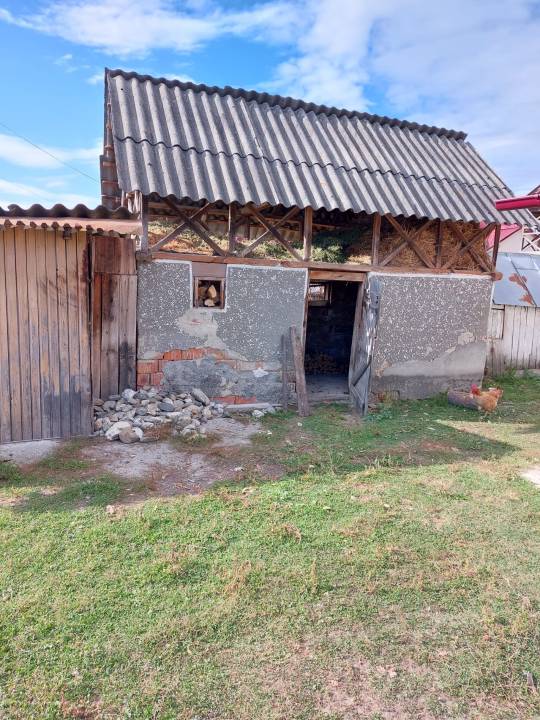
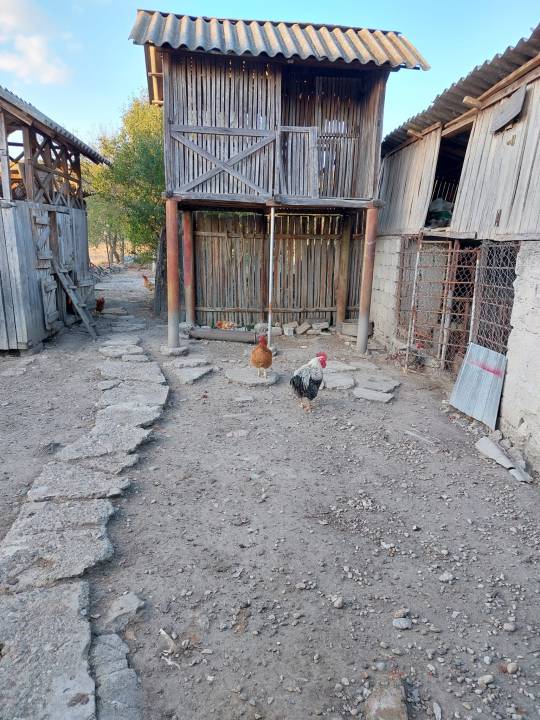
[ Photos of Alta's grandparent's home, taken during a recent visit to Romania. On the left is the cow barn where Alta used to read. ]
I sometimes look at the children of my American friends, with their room full of toys, and I know that their toys don’t make them any happier than my rag doll had made me. And I know that my American female friends, emancipated as they are from the “patriarchy,” aren’t happier than Grandmother. In all traditional societies, labor is organized according to the existence of the two sexes and this has nothing to do with anyone’s “oppression.” Men do some things, women do other things—it's simply a division of labor based on physical differences between the two, and it’s a division that can be observed across cultures and millennia. According to all statistics and their own statements, it’s obvious that many American women are in profound disharmony with themselves and the world in which they live. And this is certainly not because the world in which Grandmother lived was better—although I am wondering more and more whether it was much worse.
The first thing you need to be unhappy is to ask yourself whether you are happy or not—Unlike American women, I am convinced that this is a question Grandmother never asked herself.
Grandmother, just like her mother and her mother’s mother, lived in a way that imitated the lives of previous generations, in an entanglement with “tradition”—the dirty word that American feminists and progressives utter with so much disdain and which they translate as “oppression” and “victimization.” I often try to imagine what Grandmother would have answered had I told her that she was “oppressed” by the patriarchy in particular and society in general. I think she would have had a hard time understanding the concept. You see, it’s hard to feel “oppressed” when you have inner freedom. Aside from this, nobody in the world of my grandparents thought in these terms because in traditional societies it is shameful to be a victim. Only in a world of privilege can victimhood acquire a desirable status. I call this the law of subliminal contradiction, something I discovered by observing how Americans behave. Another example: only in a society of excess can the richest people dress in a way that imitates the homeless. In the society of poverty in which I grew up, it was shameful to wear torn-apart clothes; on the other hand, if you look at the way most well-to-do Americans are dressed today, you’d think they live on the street. Consider high fashion clothing that gives the illusion of poverty and manual labor, like mud-splashes and rips on jeans.
Today I write these lines from France, in my second exile. And many things have changed! My husband is now my ex-husband; he has returned to Romania, and I to Europe. My best friend with whom I used to explore libraries and books, and who grew up in a one-bedroom apartment with two parents, a grandmother, an older sister, and her daughter, and who at ten years old was forced by circumstances to take care of the entire household while her father lay drunk in a ditch and her mother worked on construction sites, is now a doctor and owner of a major medical lab. Unlike my American acquaintances, she never saw herself as a “victim” of anything. When I came to this country as a political refugee over thirty years ago, the thing that most impressed me about Americans was that they were very responsible and resilient. Thirty years later this country has been turned upside-down. But the truth is that the signs and the seeds of this reversal were already present thirty years ago, mostly in one particular space: academia.
The rare Marxists from back then are now the norm (although many traditional Marxists point out that, unlike American academics, Marx was never concerned with “race and gender”). They are the people who call Putin “right-wing,” as if he'd been schooled by the Republican Party rather than the Communist Party, whose Secret Police he represented as an officer of the KGB. The reason Putin is “right-wing” is because he’s a nationalist and anti-LGBT—but if these academics had read any books from my part of the world, they’d know that every single Communist country was ultra-nationalist and homophobic. In Communist Romania you could go to prison for twenty years for being a homosexual. Putin may no longer be a “Communist” because the gifts of the Capital are way too sweet, but his authoritarianism is rooted in Communism nonetheless, and his homophobia has nothing to do with being “right-wing” unless you project a Western value system onto a completely different world in which the categories of Left and Right merge.
After you’ve experienced the clichés of Communist propaganda, you can easily spot the mental structures underlying the impulse to reduce the complexity of the world down to one huge power struggle in which everybody is either an oppressor or a victim. This is why having lived through Communism has become very useful in contemporary America, and it's why the few of us who denounced the insanity of Communism when it could have cost our lives won’t keep our mouths shut now that America is losing its mind. For instance, the concept of “reparations” based on inherited collective guilt is eerily similar to the Communist practice of punishing an entire family for the deeds of any of its members, including the dead. Just like the “Diversity, Equity, and Inclusion” activists who are being paid hundreds of thousands of dollars to lecture you, the Communists created a privileged class called the “nomenklatura”—Party activists who did nothing but spread ideology and propaganda, making sure that the rest of us conformed to the official dogma. One trait of people who create dogmatic ideologies is that they never feel obligated to obey their own dogma—if they did, they would have to cancel their own privilege.
Because history is always written from one point of view, being an American academic often comes with the privilege of (re)writing history. And in an Americentric world, these academics look at everything through the lens of their own history, which they project onto everybody else. When have you ever heard academics from English departments and Women/Gender/Ethnic Studies—who have been teaching generations of students about the evils of European colonization—denounce the colonization of Eastern Europe by the Russians and by the Turks? It’s as if 500 years of history—the history of the Ottoman Empire—never existed. Or as if Russia started its colonial history with the invasion of Ukraine.
According to these academics, being European is equivalent to having a mysterious essence called “whiteness,” and I should repent for my “white privilege” and Europe’s colonial history, as if my “white” ancestors had colonized anyone and not the other way around, or as if they had enslaved “brown” Muslims and not the other way around.
Let me tell you an anecdote about how I was made to pay for my “white privilege.” You may remember the brouhaha after the poem performed by the young, black author, Amanda Gorman, at Biden’s inauguration, was commissioned to be translated into Dutch not by another black woman, but by a white person. This white person happened to be Marieke Lukas Rijneveld, who identifies as “non-binary” and is a few years older than Gorman. After a complaint that the chosen translator was not black, the translator withdrew from the project and the publisher issued a public apology—never mind that it was Gorman herself who had chosen the translator and that it’s quite likely that there aren’t many black translators who translate into Dutch and have Rijneveld’s literary skills. I know this because I had read Rijneveld’s award-winning book translated into English and recommended it on social media. When the scandal broke, many American translators—some of whom I was personally acquainted with through my work as a translator—commented on the affair online, supporting the decision to replace the white translator with a black translator. In response, I dared to share the comment of a French member of PEN, who believed that skin color should have nothing to do with who translates what. I accompanied this comment with my own: “I think that, this being a forum of translators, we should give a voice to different opinions from other languages.” I was subjected to a pile-on of virulent attacks, summoned to delete my “inflammatory” remarks, and it was made clear to me that my opinion could only be the result of my “white privilege” because I was (I'm not kidding you) a “cultural essentialist.” The cherry on top was that I was also called a “transphobe” because I had “misgendered” Rijneveld—the irony being that I was the only one in that group who had actually read and supported the “non-binary” author. I left these discussions after it was clear that I didn’t have the “revolutionary consciousness” to belong.
The fact is that nothing—and certainly not “white privilege” or any kind of “systemic” anything—is stopping anyone in America from learning languages and translating. When I was a graduate student in French at the University of Florida, my black classmate had spent time in France, just like everybody else in our program. I was the only one who had never been to France. Yet if I could learn French while believing that I would never see France because traveling to Western Europe was, for a Romanian of my station, as impossible as going to Mars, then any American—black, blue, or purple—can do it.
Privilege is a funny thing, especially in a society in which being a victim grants the highest social status. I for one prefer to assume the privilege of having experienced both Communism and life as an immigrant—a privilege America’s social justice warriors will never have—because it has taught me that you can be free under the worst dictatorship and a slave to groupthink in the freest of worlds.
==

#SmashCapitalism
🤡
#Alta Ifland#We The Black Sheep#communism#capitalism#smash capitalism#Marxism#late stage Marxism#Communist Party#religion is a mental illness
23 notes
·
View notes
Text
~◇~ Welcome to my langblr ~◇~
◇ Hi, my name is Alexandra, and linguistics is my passion! Below you will find the detailed information about my language study plan as well as the contents that will be posted on this blog.
• Short version: my native language is Romanian. My current focus is getting fluent in Polish (currently at around B1-B2), improving my French (also around B2) and finding a Romanian Sign Language course. In terms of linguistics, my main interests are historical and comparative linguistics, etymology, language typology, language acquisition, language evolution, innovation and word formation.
◇ Why "Lingwistyka Bałto-Sławistyka"?
• This sideblog started when I was writing a paper about the common origins of Slavic and Baltic Languages. The name is in Polish because it's the main language I'm learning. As for the Baltic part, I still really want to learn Lithuanian one day.
°•°•°•°•°•°•°•°•°•°•°•°•°•°•°•°•°•°•°•°•°•°•°•°•°•°•°•°
◇ Romanian (native language)
~~~ ◇ ~~~ About me ~~~ ◇ ~~~
~ ◇ ~ Language learning ~ ◇ ~
Languages I can speak:
◇ English (C2)
◇ Polish (B1-B2) <- priority
◇ French (B1-B2) <- priority
◇ Russian (B1)
Languages I want to study in the near future:
◇ Romanian Sign Language <- priority
◇ Lithuanian
◇ Old English
Languages I want to study eventually:
◇ Aromanian
◇ A Nordic language
◇ A South Slavic language
◇ American Sign Language
◇ Japanese
◇ Estonian
◇ A constructed language
Languages that I would potentially need to learn in the future:
◇ German
◇ Hungarian
◇ Ukrainian
~ ◇ ~ Linguistics ~ ◇ ~
Branches of linguistics I'm most interested in:
◇ Historical and comparative linguistics. Indo-European studies
◇ Etymology. Lexicology
◇ Typology
◇ Language acquisition
◇ Linguistic evolution. Creolization. Grammaticalization
~ ◇ ~ How I got into linguistics ~ ◇ ~
My first contact with foreign languages was my dad teaching me to say "I love you" in as many languages as he knew how to, since I was a toddler. During early childhood, the main foreign language I was exposed to was English, mostly via Disney movies, other cartoons, and, later on, the Internet. During middle school, I took up French, being a mandatory subject, and studied it in school for 8 years. At some point in 6th grade I tried teaching myself Japanese using one textbook and anime, and it didn't even get me to an A1 level. However, if I had the chance, I would take it up again in the future.
More importantly, in 6th grade, my teacher enrolled me in the linguistics olympiad, which I fell in love with at first sight. I had never seen such a thing before, and I was completely awestruck. I remember that it was a problem in which we had to decipher Luwian hieroglyphs. I loved it so much that I continued to attend this olympiad yearly for the rest of my pre-university schooling. Another relevant detail is that I learned the etymology of my name at around the age of 15, and binge read dozens if not hundreds of behindthename entries. This solidified a lifelong interest in etymology and historical linguistics.
Specifically because of my interest in linguistics, I pursued a philology (literature + linguistics) degree in college, being an English major and a Russian minor. I had taken up Russian from scratch, and reached approximately a B1 level. However, I also took an elective Polish course, only once a week for 3 years, and got a higher language level than Russian, which was my minor. It helps that I went to Poland twice in the meantime.
I am currently enrolling in a linguistics masters program, hoping to deepen my knowledge of the subject and learn how to do real research of my own. My short term language learning goals, aside from perfecting my Polish and French, would be to start studying Romanian Sign Language.
8 notes
·
View notes
Text
#study in romania#study in romania from bangladesh#Romanian american university#scholars study abroad#8801711964877
0 notes
Text
Character ref sheets: Henry H. Stickmin
A repost.
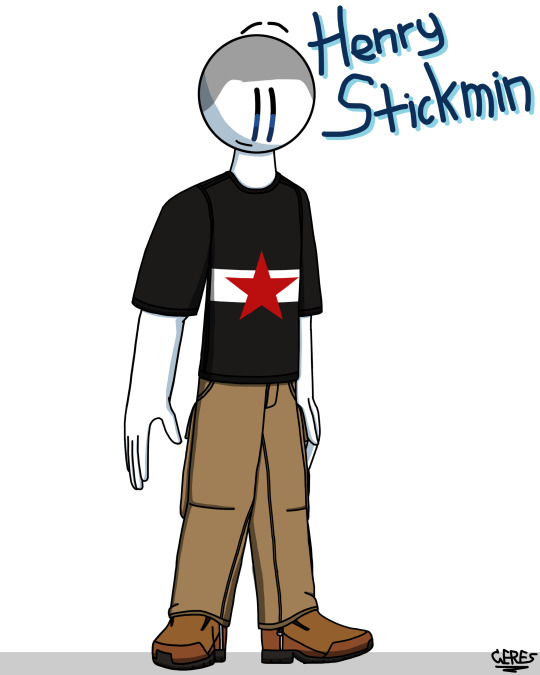
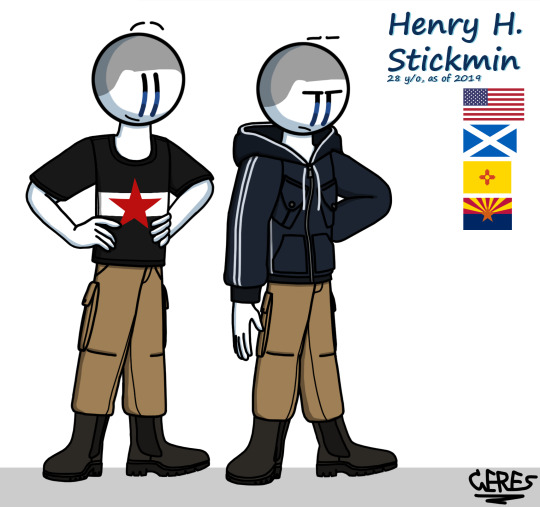
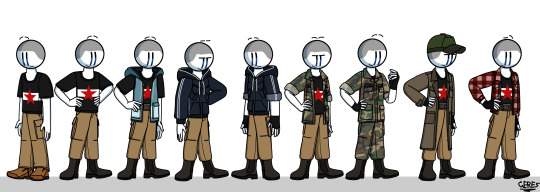
Henry Harison Stickmin
Nicknames: Hen, Hank, Sticks, Sticky, Sir Harison, HS_1214, Person of Interest #52763
Age: 28 (As of mid 2019.)
Birthplace: Carlsbad, NM
Current Location: Tucson, AZ
Nationality: Scottish-American
Physical description: Normal build, Blue eyes, (White, sunburnt skin), Shaven hair, Two scars on right forearm, Scar near upper abdomen.
Bio: It would seem that he's done with being a petty criminal. For now.
Just a normal dude like everybody else like him in his country.
No traumatic past, just a normal, carefree kid.
His parents divorced in late 2013, but they're still on good terms.
He's a bit Introverted, and as such is usually silent and doesn't feel all that comfortable out in public.
He considers himself an Agnostic.
Sometimes communicates using hand gestures or body language.
Doesn't like speaking in length, but can if he wants to.
Not a person to let bygones be bygones.
This particular Henry hails from a timeline where he hated toppats and other associated organized criminal groups.
Has substantial knowledge of other timelines, even remembers experiencing a temporal phenomenon well before the botched bank robbery attempt.
Frequently has vivid dreams (or nightmares) about bizarre things, and sometimes about things in the past or the other (less fortunate) timelines.
Has a diary to write down whatever happens in a day or what he's just experienced.
Has been keeping diaries well since mid 2016.
Knows about his extraordinary luck.
Doesn't know how many superntural abilities he possesses.
His knowledge about what happened in those timelines has made him pessimistic, a bit depressed, and hate himself for existing.
Has contemplated on the possibility that he might be living in a simulation, but has since dropped such "bogus crackpot conspiracy bullshit".
A light smoker. One pack is enough to last 2 weeks, and he rarely smokes.
His notoriety has died down since the beginning of 2019.
Sometimes asked if he is the real Henry Stickmin by passing pedestrians.
Has accounts on Reddit, Twitter and YouTube, all under the alias HS1214 and Twitter handle TheHenryHStickmin.
Has a close relationship with Ellie through their shared hardships.
He and Ellie bought a home together using both of their Gov't' monetary compensation.
Sold his old home too.
Both have lived normal daily lives, so far.
A novice home cook.
Has a large amount of friends/accomplices/confidants, ranging from high school and university classmates, members of the Goverment/Armed Forces, members of several police departments, and even an ex-CCC contractor, as well as from countries as far and obscure as Honduras, Australia, New Zealand, the Czech Republic, Turkiye, etc.
Knows a lot of languages, most notably Spanish, Scottish Gaelic, French, Portuguese, Italian, Romanian, German, Polish, Serbo-Croatian, Russian to name a few.
Keeps a roster of his notable confidants/accomplices on paper.
Knows Charles and Dave only to some degree, despite having met them on more than one occasion.
Never ashamed of being a former petty criminal.
Has an H&K USP Compact and an M16A2.
Likes wearing the same set of basic clothing every day (T-shirt, Trousers, Boots)
Recently started wearing boots more often.
Has a taste for clothing, loves thrifting and milsurp gear.
Sometimes, he will wear all black, balaclava included.
Other than his scooter, he also owns a Honda CR-V, which both he and Ellie drive.
Keeps all of his trinkets somwehere in his bedroom, even his Teleporter.
Puts some of his "spoils of war" (a number of various items from previous criminal acts) on display in his parts of house in a show of bravado. Including an empty money bag and the bumper of a police cruiser, license plate included.
Now just trying to live a more righteous life and stay away from crime.
Watched one too much news on TV and is probably plotting something daring against the remnants of what was once the Toppat Clan.
At the same time he only wishes to live a normal life and probably reverse his past mistakes temporally.
Doesn't know whether the CCC is onto him or not.
Backstory
Masterpost | Charles >
#the henry stickmin collection#henry stickmin collection#thsc#thsc fanart#henry stickmin fanart#henry stickmin#thsc henry#thsc henry stickmin#character ref sheet#ceres hath spoken
15 notes
·
View notes
Text
◇MORE OC CONTENT, MORE SPECIFICALLY, HYRBID CONTENT!!!!◇
~CW FOR SPIDER IMAGES~
Note: feel free to ask anything about him or how hybrids work in my universe in general!

•Meet Anansi, he is one of the many subjects throughout labs that have experimented with a variety of animal DNA to be spliced with human DNA to create hybrids, which so far has been successful in most cases, these hybrids take on a human form with traits from the animal they have been spliced with during creation, they also exhibit some behaviours of said animal, both good and bad...

•Anansi was spliced with the DNA of a zebra spider, a common type of jumping spider
•he shares quite a lot of different traits with this side of him, here are a few of his stats

•Age: 19 years old
•Ethnicity: Romanian-American
•Height: 5'7
•Weight: 151 lbs
•Gender: Male
•Likes: Dancing, laying out in the sun and socialising
•Dislikes: huge crowds of people, loud noises
•Fears: Girls, may sound silly but it's an instinctual thing for him, since many male spiders are often eaten by females before, during or after the mating process, he also fears rejection for the same thing, it's an instinct thing
-❄️
#art#small artist#artists on tumblr#oc#oc art#hybrid oc#spider oc#digital drawing#digital art#digital illustration#oc art dump#oc artwork#original character#tw spiders
8 notes
·
View notes
Text
AGARRE-VENUSE
"the planet that wants for naught"
"the neutral planet"
"the devil planet"
...
PLANET
Much is said about the blood-red planet, Agarre-Venuse.
From Space's Point of view, the planet is a mahogany- red color with multiple rings surrounding it. It's been named the prettiest planet.
Languages : ancient vampiric (dead-ish), vampiric , old french , english , german , romanian, etc.
Main Wealth Source : Industrial Weapons & Creations (along with "Ancient Weapons & Creations")
Agarre-Venuse has been labeled for the past few centuries , as the "Neutral planet" they've rarely gotten into any other-worldly affairs since its formation, having only aided in two great wars as an ally to Caladan's House Atreides in 8820 and Giedi Prime's House Harkonnen in 8978.
However before then, Agarre-Venuse's first and only prime enemy has always been Carassa. Carassa is an industrial planet, known for their sciences and up and coming cloning inventions.
7439 - 7508 (First Great War between Agarre-Venuse & Carassa) Alucard Agarre (the first king)'s reign
8078 - 9012
Haven't come into contact in 1,156 (considered at peace)
At least until Elizabetha (The Current Queen; an Ex-Bene Gesserit) fucked it up.
(but you'll see how later)
Other than those times, the planet but more specifically, the Great house; Lavenza-Venuse is quite known for their "nonchalance and naivety to the universe around them and its problems." Being that early on in it's days, was neglected and many times, attacked, by other great houses and even neglected by the spacing guild. (So pretty much they're just PETTY and pick and choose when to get involved in things)
Due to this, the planet became completely self-dependent, with no need for trade or resources from others. The planet began to make weapons that garnered the attention of many planets and great houses, finally giving them the recognition they deserved. Everyone wanted to be an ally to them and get weapons from them. Agarre-Venuse's biggest and longest running allies are The Harkonnen's of Giedi Prime.
They are as well known for the distinct features of its inhabitants, the vampires.
VAMPIRES / VAMPYRES
Agarre-Venuse is the planet closest to being like the extinct Earth of over 8,000 years ago. except there's only one reigning ruler of the entire planet.
Some parts of the planet speak different languages, with varying accents, cultures, and even religions (for the most part.)
This is due to the fact that when Earth was at the brink of destruction and it's people began to flee to other planets, the majority of the hidden race of Vampires traveled to the planet (newly named) called Agarre and continued to grow and prosper there. Vampires from all over the Extinct earth, inhabited Agarre. Romanian, French, German, Irish, American and more. It was decided that it would stay that way for the most part, resulting in the planet to be quite diverse.
While at first, all vampyres could speak what is now known as Ancient vampiric, it was agreed upon that the other languages would be kept as well.
As time progressed, the language practically died, with only ancient elders, and royalty could speak the language.
Agarre-Venuse is a vast planet with a population of about 3,333,000 inhabitants, all of which are of the Vampire race, (which played a factor in their neglect from other houses and planets, because they believe them to be "animals".
Back in the Extinct Earth's time. Vampires were simply considered a concept of fiction and media, which is why the truth of the race being real was very criticized.
Vampires are known for their sharp canines, subtle claw-like nails and the various types of red eyes they possess. No two Vampyres have the same red in their eyes, making the race truly unique to the rest of the galaxy.
As well as a big target.
Alucard Agarre was the first king of House Agarre and ruler of Agarre (previously House Agarre) Later named Agarre-Venuse, for that was his wife, Romann's, surname.
The conflict between Agarre and Carassa began after a weapons trade gone wrong.
REDACTED. REDACTED. REDACTED.
Because Vampires are known for their unique eyes, it became known as a rare "artifact/treasure". People have payed up to millions to have a pair of Vampire
eyes in their possession.
However, on Agarre-Venuse the taking of a Vampire's eyes is a high treason that can be punishable by death.
REDACTED. REDACTED. REDACTED
The remaining information on this planet has not yet been translated to outsiders.
15 notes
·
View notes
Text
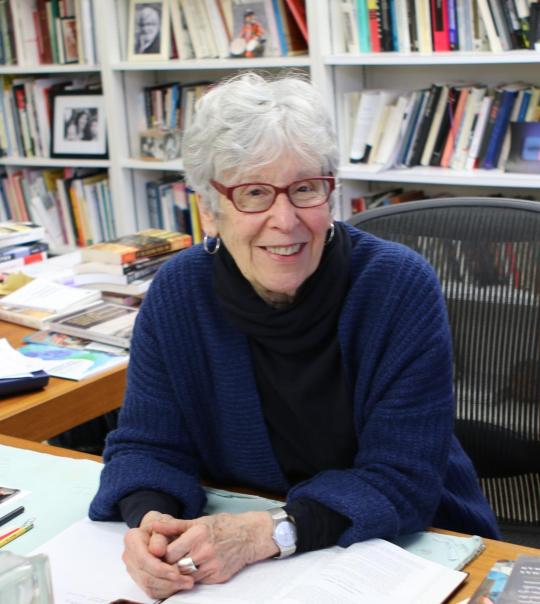
With her book The Return of Martin Guerre (1983), the historian Natalie Zemon Davis, who has died aged 94, attracted a wide readership and inspired future historians. It came out of working as a historical consultant on a film of the same name released the previous year, starring Gérard Depardieu and Nathalie Baye, and directed by Daniel Vigne.
Martin Guerre, a peasant farmer in the 16th-century Pyrenees, left his wife Bertrande to go on a journey, only to have his marital role usurped by an impostor who “returned” pretending to be him. After some years of cohabitation, Bertrande denounced the impostor, her testimony seemingly confirmed by the return of the real Martin Guerre. The impostor was duly tried and executed.
The film-makers’ questions about period detail and behaviour intrigued Davis. But other aspects of the movie genre troubled her, so she went back to the archives and wrote up her own compact account of 120 pages.
A gripping narrative and a lesson in method, Davis’s book raised questions about the reliability of evidence and the motives and worldviews of peasant men and women from a faraway place and time. It is an example of a microhistory, where historians turn away from the big canvas of kings, queens and battles to understand ordinary lives, often through a highly localised case study.
The Return of Martin Guerre was one of a series of works including Society and Culture in Early Modern France (1975), Fiction in the Archives (1987), Women on the Margins (1995) and The Gift in Sixteenth-Century France (2000). Davis’s trademark was the longer essay or biographical study, often focused on marginal or misunderstood personalities, all spiced with a sharp attention to issues of religion, gender, sex, class, money and power. Historical records for her were never dull: she once described them as “a magic thread that links me to people long since dead and with situations that have crumbled to dust”.
Born in Detroit, Natalie was the daughter of Helen (nee Lamport) and Julian Zemon, a textile trader, both children of east European Jewish immigrants to the US. While studying at Smith College, Massachusetts, at the age of 19 she fell in love with Chandler Davis, a brilliant mathematician and socialist activist; they married in 1948 and went on to have a son and two daughters. Her first degree, from Smith (1949), was followed by a master’s at Radcliffe College (1950).
Her life with Davis was productive and fulfilling but also complicated her early career, as his principled stances against McCarthy-era restrictions on political expression led to both him and her being barred from a number of posts, and from travelling abroad. This she needed to do for her doctorate on 16th-century France.
After finally gaining her PhD at Michigan University in 1959, Davis went on to hold positions at Toronto, moved in 1971 to the University of California, Berkeley, where she was appointed professor, and in 1978 to Princeton, retiring in 1996. She became only the second woman to serve as president of the American Historical Association (1987), and the first to serve as Eastman professor at Oxford (1994). In 2012 she was appointed Companion of the Order of Canada, and in the US was awarded a National Humanities Medal.
Davis helped establish programmes in women’s studies and taught courses on history and film. Her AHA presidential address, History’s Two Bodies (1988), summed up her thinking about gender in history. It was also the first such address to be printed with illustrations. Her book Slaves on Screen (2002) was one of the first in-depth treatments of this topic by a professional historian.
In her last two books, Davis returned to the exploration of mixed identities. Trickster Travels (2006) was about the 16th-century scholar Leo Africanus, whose complicated Jewish and Muslim roots in North Africa she expertly unpicked. Listening to the Languages of the People (2022) focused on the 19th-century scholar Lazare Sainéan, a Romanian-Jewish folklorist and lexicographer who published one of the world’s first serious studies of Yiddish, but had to abandon his Romanian homeland for Paris in 1901.
At the time of her death, Davis was completing a study of slave families in colonial Suriname: it is hoped this will appear under the announced title of Braided Histories. In this way she continued to explore unconventional topics, going against the grain of Eurocentric history and looking instead at the boundaries of identity and belonging in very different settings.
Visiting many universities and research centres in her retirement, Davis encouraged younger scholars by conveying the potential of history to inspire empathy and hope for change. While at my own institution, the University of Amsterdam, in 2016, she made it her main aim to talk to students rather than to other professors. In 2022-23 she presented her latest work in online seminars, and wrote and corresponded actively until shortly before her death from cancer.
Chandler died in 2022. Natalie is survived by her three children, Aaron, Hannah and Simone; four grandchildren; three great-grandchildren; and a brother, Stanley.
🔔 Natalie Zemon Davis, historian, born 8 November 1928; died 21 October 2023
Daily inspiration. Discover more photos at Just for Books…?
14 notes
·
View notes
Text
Holidays 6.24
Holidays
Accla Brewing Day (Ancient Inca)
Araw ng Maynila (a.k.a. Manilla Day; Philippines)
Bannockburn Day (Scotland)
Burning of the Lamps (Sais, Egypt; Ancient Egypt)
Calcio Fiorentino (Florence, Italy)
Carabobo Day (Venezuela)
Cat World Domination Day
Celebration of the Senses Day
Countryman’s Day (Peru)
Day of the Caboclo (Amazonas State, Brazil)
Dia del Indio (a.k.a. Day of the Indian; Latin America)
Discovery Day (Newfoundland and Labrador; Canada)
Dobbs Anniversary Day
Experiment 624 Day (a.k.a. Angel Day; Lilo & Stitch)
Farmer Day (Peru)
Festival of Contagious Magic
Fisherman's Day (Zaire)
Flying Saucer Day
Free RPG Day
French Canadian-American Day
Global Day of Action to Climate & Employment Proof Our Work
Hawaiian Coffee Day
International Day of the Makeup Artist
International Day of Women in Diplomacy
International Fairy Day (a.k.a. Faerie Day)
International Ia Day (Romania)
La Festa Dei Gigli (Festival of the Lilies; Italy)
Lost Handkerchief Day
Manila Day (Philippines)
Melpomene Asteroid Day
Museum Comes To Life Day
National Ageless Day
National Day of Joy
National Holiday of Quebec (Canada)
National Kenneth Day
National Indigenous Day (Peru)
National Le Day
National Midwife Day (Indonesia)
National Parchment Day
National Patch Day
National Pegging Day
National Relationship Equity Day
National Upcycling Day
Quarter Day (England, Ireland & Wales) [2 of 4]
Rosemary Day (French Republic)
Sânziene (Carpathian Mountains, Romania)
St. John’s Wort Day
Stonewall National Monument Day
Summer List Day
Summersgiving
Surfside Remembrance Day (Florida)
Swim a Lap Day
Swing a Kid Day
Think Your Way to Health Day
Tibedetha (a.k.a. Tiber’s Day; Elder Scrolls)
Universal Day of the Romanian Blouse
World Alsace Lovers’ Day
World History Day
World Messi Day
World Senses Day
World UFO Day [& 7.2]
World Young Doctors Day
Food & Drink Celebrations
American Barley Wine Day
National Creamy Pralines Day (a.k.a. National Pralines Day)
National Take Back the Lunch Break Day
Independence & Related Days
City Day (Porto, Portugal)
Constitution Day (Zaire)
Edanzia (Declared; 2018) [unrecognized]
Gishabrun (Declared; 2009) [unrecognized]
4th & Last Monday in June
Hetero Male Monday (Boise, Idaho) [Every Monday in June]
Motivation Monday [Every Monday]
Please Take My Children To Work Day [Last Monday]
Weekly Holidays beginning June 24 (4th Full Week)
Boys & Girls Club Week (thru 6.28) [Mon-Fri of Last Week]
Lost Handkerchief Week (Shamanism)
Festivals Beginning June 24, 2024
APGA Conference (Boston, Massachusetts) [thru 6.27]
HTEC 2024 (Charlotte, North Carolina) [thru 6.27]
INmusic Festival (Zagreb, Croatia) [thru 6.26]
National Insect Week (thru 6.30)
Feast Days
Alfred (Positivist; Saint)
Amitabha Buddha Day (Buddhism)
Ambrose Bierce (Writerism)
Anton LaVey Day (Church of the SubGenius; Saint)
Bartholomew of Dunelm (or Farne; Christian; Saint)
The Burning of the Lamps (Ancient Egypt; Everyday Wicca)
Claribelle (Muppetism)
Eleanor Norcross (Artology)
Feast of Parvati )Woien’s Festival; India)
Feast of Rahmat (Baha’i)
Ferdinand Bol (Artology)
Festival of Fata (Ancient Roman Goddess of Fate and Chance)
Fors Fortuna (Ancient Rome)
Fortuna’s Day (Pagan)
International Fairy Day (Starza Pagan Book of Days)
Inti Raymi (Ancient Inca)
Jan Matejko (Artology)
Jean Metzinger (Artology)
Lawrence Block (Writerism)
Margaret Olley (Artology)
María Guadalupe García Zavala (Christian; Saint)
The Martyrs under Nero (Christian; Martyrs)
Midsummer
Mog Ruith (Servant of the Wheel; Celtic Book of Days)
Nativity of Saint John the Baptist (Christian; Saint)
Robert Henri (Artology)
St. John’s Day [and 2nd Day of Midsummer celebrations] (a.k.a. ...
Bonfires of St. John (Spain)
Enyovden (Bulgaria)
Feast of the Dews (Lithuania)
Inti Raymi (Festival of the Sun, a.k.a. Peasants Day, Peru)
Jaanipäev (Estonia)
Jāņi (Latvia)
Joninės (a.k.a. Saint Jonas' Festival; Lithuania)
Jónsmessa (Iceland)
Macau Day (China)
Midsommardagen (Sweden)
Midsummer Day (England)
Midsummer’s Day (Estonia)
Quarter Day (England)
Saint John the Baptist Day (Andorra)
Saint Jonas' Festival or Joninės (Lithuania)
Sant-Jean-Baptiste Day (Quebec)
Sânziene (western Carpathian Mountains of Romania)
Surinal (North Korea)
Wattah Wattah Festival (Philippines)
Zuni Buffalo, Corn and Comanche Dances (Zuni Native Americans)
Saloua Raouda Choucair (Artology)
Sexual Fantasy Day (Pastafarian)
Simplicius (Christian; Saint)
Sun Festival (Peru)
Zamling Chisang (Universal Prayer Day; Tibetan Deities, esp. Samy Dolde)
Zemlya's Night (Mati-Syra-Zemlya, Slavic Goddess of the Earth)
Orthodox Christian Liturgical Calendar Holidays
Whit Monday [50 days after Orthodox Easter] (Orthodox Christian) a.k.a. ...
Doua Zi de Rusalii (România)
Holy Spirit Monday
Kataklysmos (Cyprus)
Monday of the Holy Spirit
Pentecost Monday
Lucky & Unlucky Days
Taian (大安 Japan) [Lucky all day.]
Unfortunate Day (Pagan) [37 of 57]
Premieres
All a Bir-r-r-d (WB LT Cartoon; 1950)
Ape Suzette (The Inspector Cartoon; 1966)
Bewitched (Film; 2005)
The Caine Mutiny (Film; 1954)
Cars 2 (Animated Pixar Film; 2011)
Cat Ballou (Film; 1965)
Catch-22 (Film; 1970)
Chastity (Film; 1969)
A Chinaman’s Chance (Ub Iwerks Cartoon; 1933)
Dangerously in Love, by Beyoncé (Album; 2003)
Elvis (Film; 2022)
4, by Beyoncé (Album; 2011)
Generation Cancellation, by Little Big (Song; 2022)
The Great Milenko, by Insane Clown Posse (Album; 1997)
Happy-Go-Nutty, featuring Screwy Squirrel (Tex Avery MGM Cartoon; 1944)
Hawaiian Vacation (Pixar Toy Story Cartoon; 2011)
Herbie Goes to Monte Carlo (Film; 1977)
Hot Air Races (Fleischer/Famous Popeye Cartoon; 1949)
Independence Day: Resurgence (Film; 2016)
The Last Indian (Terrytoons Cartoon; 1938)
The Lion King (Animated Disney Film that ripped off Kimba; 1994)
Little Girl Blue, by Nina Simone (Album; 1958)
The Man from Toronto (Film; 2022)
March of the Penguins (Documentary Film; 2005)
McCabe & Mrs. Miller (Film; 1971)
Mr. Robot (TV Series; 2015)
The Newsroom (TV Series; 2012)
Nuts and Jolts (Oswald the Lucky Rabbit Cartoon; 1929)
Pink Paradise (Pink Panther Cartoon; 1967)
Scalp Trouble (WB LT Cartoon; 1939)
A Scent of the Matterhorn (WB LT Cartoon; 1961)
A Sleepless Night (Heckle & Jeckle Cartoon; 1948)
Sorcerer (Film; 1977)
Spaceballs (Film; 1987)
A Spaniard in the Works, by John Lennon (Book; 1965)
The Spy Swatter (WB LT Cartoon; 1967)
Star Maker, by Olaf Stapledon (Novel; 1937)
Swiss Army Man (Film; 2016)
Symphony No. 5 in D Major, by Ralph Vaughan Williams (Symphony; 1943)
Ten North Frederick, by John O'Hara (Novel; 1955)
Tinker, Tailor, Soldier, Spy, by John le Carré (Novel; 1974)
Under the Dome (TV Series; 2013)
Undone - The Sweater Song, by Weezer (Song; 1994)
Who Framed Roger Rabbit (Film; 1988)
Who’s Cookie’ Who? (Woody Woodpecker Cartoon; 1946)
The Will to Meaning, by Viktor E. Frankl (Psychology Book; 1969)
Yellowbeard (Film; 1983)
Today’s Name Days
Johannes, Reingard (Austria)
Enio, Yanita, Yanka, Yanko (Bulgaria)
Faust, Ivan, Krsto (Croatia)
Jan (Czech Republic)
Hans (Denmark)
Annes, Ants, Hannes, Hans, Jaan, Jan, Janno, Johan, Johannes, Juhan, Juho, Jukk, Juss, Kanek (Estonia)
Jani, Janne, Johannes, Juha, Juhana, Juhani, Juho, Jukka, Jussi (Finland)
Jean-Baptiste (France)
Johannes, Reingard (Germany)
Giota, Giotis, Panagioula, Panagoula, Panayotis, Panagiotis, Panos, Panousos, Panagis, Panagos, Panagiota, Panayota, Pani, Panikos, Pegie, Pegy, Takis, Tota, Toula, Yiota, Yiotis (Greece)
Iván (Hungary)
Gabriele, Giovanni, Romolo (Italy)
Jānis, Žanis (Latvia)
Eiviltas, Eiviltė, Jonas (Lithuania)
Hans, Johannes, Jon (Norway)
Dan, Danisz, Danuta, Emilia, Jan, Wilhelm (Poland)
Ioan (România)
Ján (Slovakia)
Bautista, Iván, Juan (Spain)
Johannes (Sweden)
Bohuslav, Bohuslava, Boris, Boryslav, Boryslava, Ivan, Jean, Joan, Johanna, John, Slavka, Slavko, Yvonna (Ukraine)
Hans, Giovanna, Giovanni, Ian, Ivan, Jan, Jana, Jean, Jeanette, Jeannette, Johan, John, Johnnie, Johnny, Juan, Juana, Juanita, Sean, Shana, Shane, Shanna, Yancy (USA)
Today is Also…
Day of Year: Day 176 of 2024; 190 days remaining in the year
ISO: Day 1 of week 26 of 2024
Celtic Tree Calendar: Duir (Oak) [Day 16 of 28]
Chinese: Month 5 (Geng-Wu), Day 19 (Ji-Wei)
Chinese Year of the: Dragon 4722 (until January 29, 2025) [Wu-Chen]
Hebrew: 18 Sivan 5784
Islamic: 17 Dhu al-Hijjah 1445
J Cal: 26 Blue; Fryday [26 of 30]
Julian: 11 June 2024
Moon: 91%: Waning Gibbous
Positivist: 7 Charlemagne (7th Month) [Alfred]
Runic Half Month: Feoh (Wealth) [Day 1 of 15]
Season: Summer (Day 5 of 94)
Week: 4th Full Week of June)
Zodiac: Cancer (Day 4 of 31)
Calendar Changes
Feoh (Wealth) [Half-Month 13 of 24; Runic Half-Months] (thru 7.8)
3 notes
·
View notes
Text
Author Ask Tag Game
Thank you @doublegoblin for the tag here! And also @gummybugg for tagging me here!
(1) What is the main lesson of your story (e.g. kindness, diversity, anti-war), and why did you choose it?
That we are what we make of ourselves, despite our traumas, despite our gifts, and despite our faults. That there are things that people do that are unforgivable, even if they are forced. Also, that true love is patient, kind, and understanding despite its awesome fragility.
I chose these themes because I think they're realistic, they're lessons that are easy to swallow, and that don't need to be pushed in people's faces to be understood. I don't want to spell things out but I also just want to tell a story, so if this ends up not being the real main lesson then I hope you all still like it.
(2) What did you use as inspiration for your worldbuilding (like real-life cultures, animals, famous media, websites, etc.)?
I studied Romanian and European fashion from the 1850's to the 1870's. Then I studied American (United States) fashion from then on until I was familiar. I studied history, slang, folklore, LGBT history, etc. As far as what my world looks like, its a cross between where I grew up in a state somewhere along the Missipiipii-fuck Mississippi river and living in Florida but make it gloomy.
(3) What is your MC trying to achieve, and what are you, the writer, trying to achieve with them? Do you want to inspire others, teach forgiveness, help readers grow as a person?
Glen is trying to become himself again after visiting the horrific and disgusting Tiletsu Clan. There he is confronted with a question that someone asked him long ago: If vampires are just more powerful humans, aren't they more dangerous? And conversely, if humans are just weak vampires, are they worth keeping safe?
As a writer, I want to tell a good story where all of the characters (except the Tiletsu and friends) are morally grey, make bad decisions that they thought were good ones, and have to grow up despite having plenty of time to do so. While trauma causes many reactions, I read a lot where the reaction is to forget everything. My experience is that I can't forget anything at all and I wanted to explore that in my writing.
(4) How many chapters is your story going to have?
About thirty chapters. The outline of Masterpiece is 70 pages long, granted it is an okay-detailed outline, with 33 parts currently. So please expect 33-40 chapters.
(5) Is it fanfiction or original content? Where do you plan to post it?
Original Content 100%. There isn't anything wrong with fanfiction at all, but I love my original characters and the worlds I build, and I'm not a big enough or cool enough fan of anything to write fanfiction.
I plan to post the first 5 chapters of Masterpiece here on Tumblr, over at Wattpad, and Ao3. Smaller novellas and the entire story will be published with a limited print run at first and the eBook somewhere that I haven't decided yet for purchasing. Starry Skies and Like Minds will follow this same process, but Henrietta and Apocalyptic Cat Lady (Working Title) are web series!
You'll be able to find more information after my website is up and running!
(6) When and why did you start writing?
I started writing when I was 11 and did collaborative writing roleplays with other people my age. Eventually, I became a big enough fan of Star Trek (Kelvin Universe) that I did a massive fanfiction with my friend that lasted years. I made many OCs, had whole stories, had lots of adventures, and then when I went to college it died. One of those OCs will be reborn into Starry Skies and Like Minds whenever I decide to write it and share it here!
(7) Do you have any words of engagement for fellow writers of Writeblr? What other writers of Tumblr do you follow?
My blog is under a year old and I have less than 100 followers, it's just the name of the game. When I posted my first piece of writing, absolutely no one found it for a while despite ABCDEFG. What helped me the most when it comes to finding mutuals that actually interact with you is to find "Looking for Writeblr" posts and go through the replies. Check every blog. Start interacting, that's why my intro post has a "Please, I promise I'm just an idiot and really like you blog" disclaimer because I do, genuinely, like a lot of stuff on other people's blogs. That is how I found the great and powerful @doublegoblin @mthollowell-writes @pinkchaosstories and @gummybugg who tag me and make my life great.
Thank you all for tagging me in everything, you make my life a joy.
#writeblr#writing#writers#writers of tumblr#writblr#writerblr#writing community#write#seriously feel free to tag me#writing advice
11 notes
·
View notes